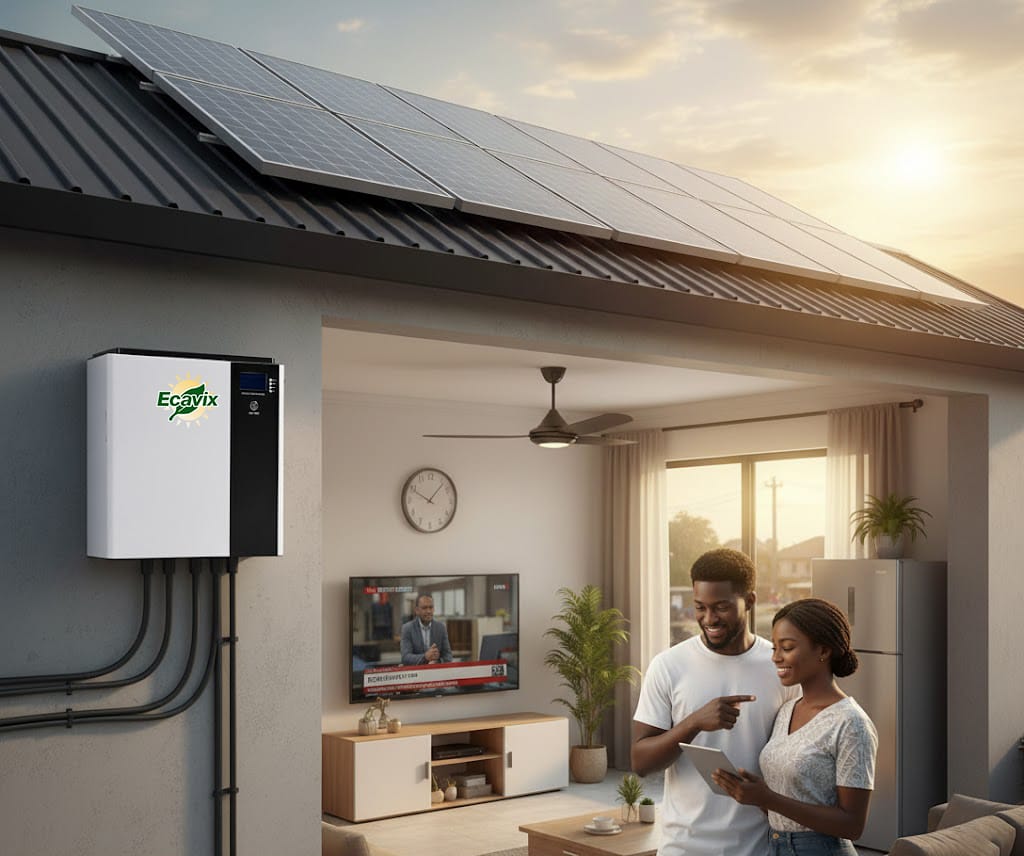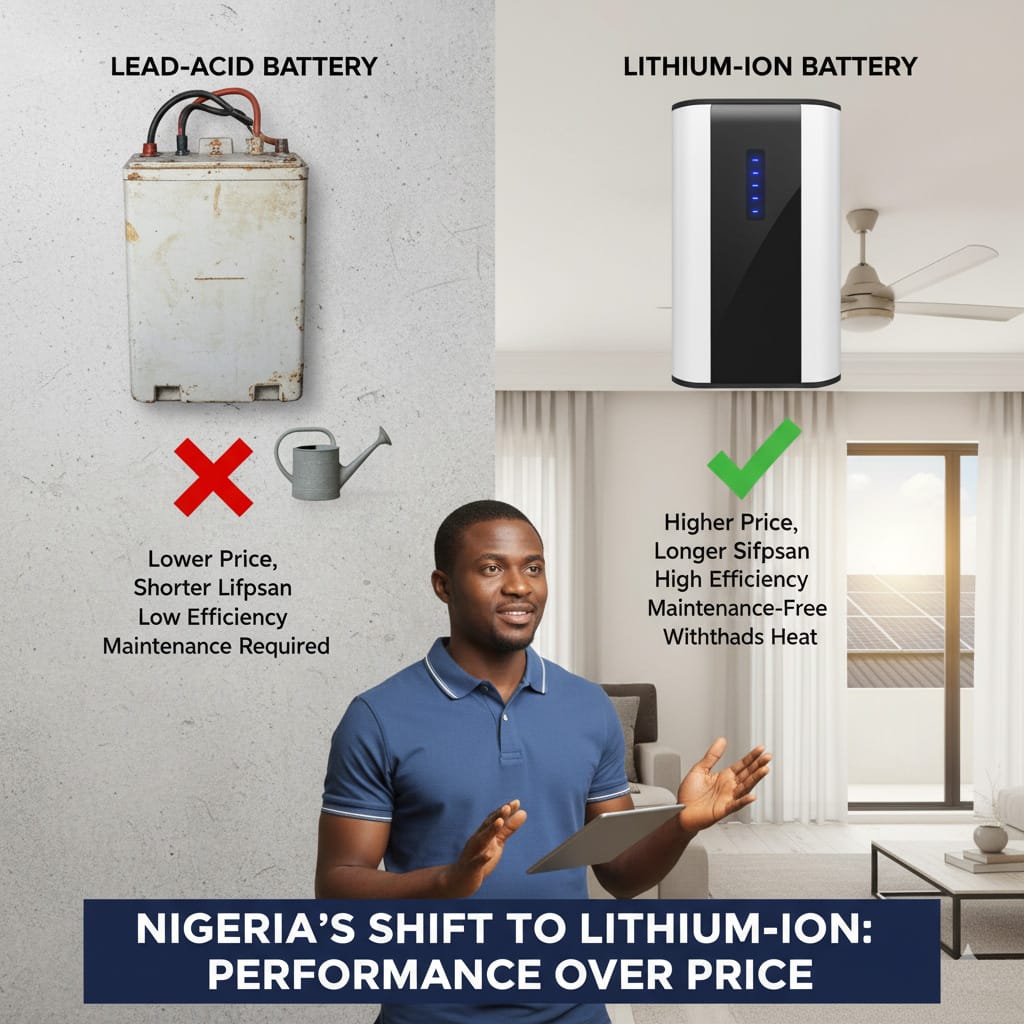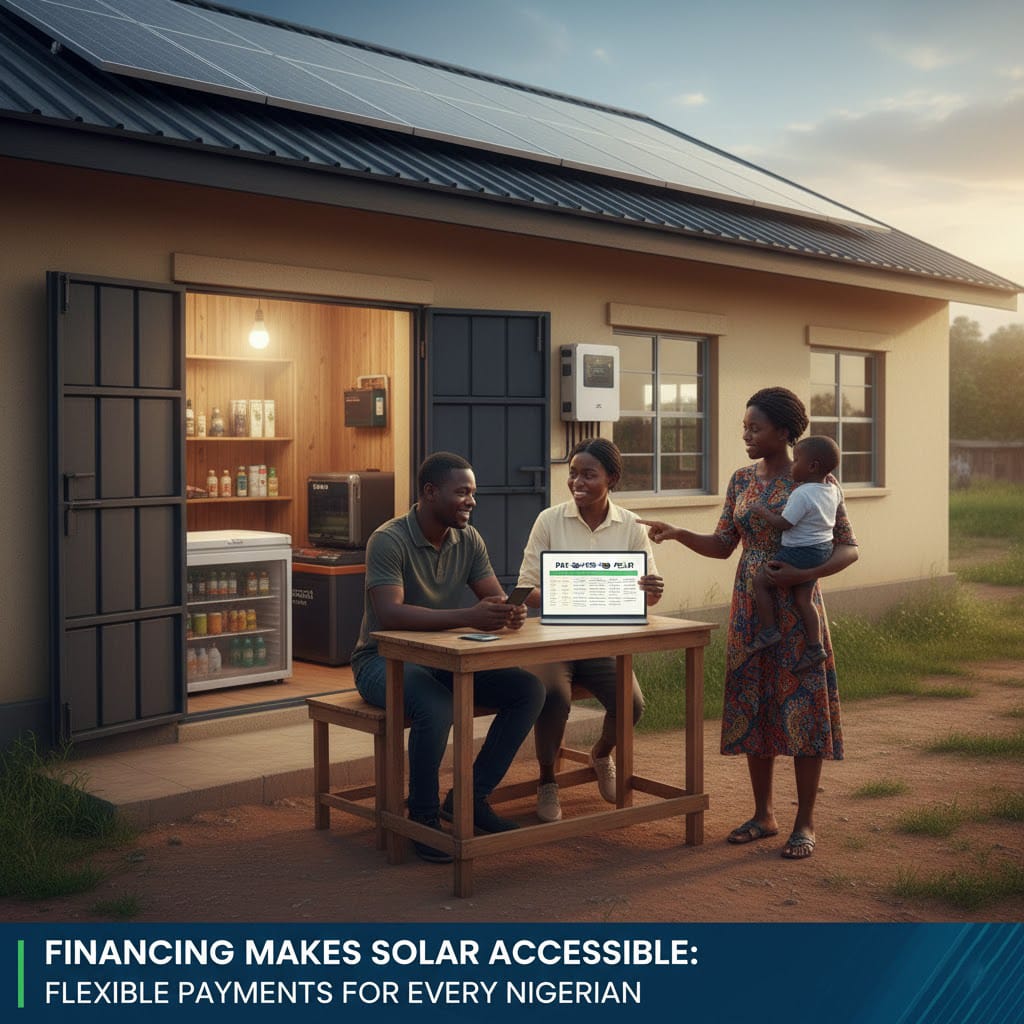In recent years, Nigeria has witnessed a significant rise in the demand for solar energy solutions. As one of the largest and fastest-growing economies in Africa, the country faces continuous challenges with electricity supply. Frequent power outages, limited grid coverage, and high fuel costs have encouraged many Nigerians to explore renewable energy options. Among these, solar energy stands out as one of the most reliable and sustainable sources of power for homes, businesses, and rural communities. As a result, interest in the solar battery price in Nigeria has grown steadily as more people look for affordable ways to store solar power and achieve energy independence.
Growing Demand for Solar Energy in Nigeria
A solar battery is an essential part of a solar energy system. It stores electricity generated by solar panels during the day so that users can continue using power at night or during blackouts. In Nigeria, where many regions experience unstable electricity supply, solar batteries help ensure that households and businesses have constant access to energy. They can power lights, fans, televisions, refrigerators, and even small industrial equipment. For this reason, understanding the solar battery price in Nigeria has become an important topic for anyone interested in renewable energy or self-sufficient power systems.

The solar battery price in Nigeria varies depending on several factors. The first is capacity, usually measured in ampere-hours (Ah) or kilowatt-hours (kWh). Smaller batteries designed for basic home use may range from 100Ah to 200Ah, while larger systems for businesses or off-grid applications can go from 500Ah to 2000Ah or more. The higher the capacity, the more power the battery can store, and naturally, the higher the price. Another factor is the type of battery. The two most common options are lead-acid and lithium-ion (especially LiFePO4) batteries.
Lead-acid batteries are more affordable but have shorter lifespans, lower efficiency, and require regular maintenance. Lithium-ion batteries, on the other hand, are more expensive upfront but offer better performance, faster charging, higher energy density, and longer cycle life. They are also maintenance-free and can withstand Nigeria’s hot climate better than traditional lead-acid batteries. Because of these advantages, more Nigerian households and solar installers are shifting toward lithium-based solar batteries, even though the solar battery price in Nigeria for lithium batteries is higher.

2025 Solar battery price in Nigeria
As of 2025, the general price range for solar batteries in Nigeria can be estimated as follows: a 12V 100Ah lead-acid battery costs around ₦120,000 to ₦200,000, while a 12V 100Ah lithium-ion battery may cost between ₦250,000 and ₦400,000. Larger systems, such as 24V 200Ah or 48V 100Ah lithium batteries, can cost between ₦600,000 and ₦1,200,000 depending on brand and specifications. Prices can also fluctuate based on the exchange rate of the Nigerian naira, import duties, shipping costs, and availability of local suppliers.
Another trend influencing the solar battery price in Nigeria is the increasing local production of solar systems and batteries. Some Nigerian companies are now assembling solar batteries locally or partnering with international brands to make renewable energy more affordable. This growing local industry helps reduce dependence on imports and can lead to more stable prices in the future. However, most high-quality lithium batteries are still imported from Asia, mainly from China, which means global market trends and shipping costs continue to affect prices in Nigeria.
Government Initiatives and Solar Growth
Government policies and incentives also play a role. Nigeria has introduced several initiatives to promote renewable energy, such as the Rural Electrification Agency (REA) and the Nigeria Electrification Project (NEP). These programs support solar projects for off-grid communities, small businesses, and schools. As awareness grows and technology becomes more accessible, competition among suppliers is likely to increase, which could lead to a gradual reduction in the solar battery price in Nigeria.

In terms of application, solar batteries in Nigeria are used in various sectors. For residential use, they are part of small solar home systems that power essential appliances. In urban areas, many homeowners install solar panels with batteries to reduce dependence on generators and high electricity bills. For commercial users, such as shops, hospitals, and schools, larger battery systems provide reliable power during long outages. In rural areas with no grid connection, solar batteries are often the only source of electricity, supporting basic needs like lighting, phone charging, and water pumping.
The importance of solar energy in Nigeria goes beyond convenience. It has become a key solution for environmental and economic sustainability. The country has abundant sunlight throughout the year, making it ideal for solar investment. Every kilowatt of solar energy used reduces the need for diesel or petrol generators, cutting down emissions and fuel expenses. However, one of the biggest challenges remains the initial cost. Although solar panels have become more affordable, the solar battery price in Nigeria still represents a major portion of the total system cost, often 40% to 60%.
To make solar batteries more accessible, financing options are becoming more common. Some companies now offer installment payment plans or pay-as-you-go systems. These options allow customers to pay monthly while using solar power immediately. Such flexible payment systems help overcome the high upfront cost and are especially useful for rural families and small businesses. As financing becomes more widespread, more Nigerians are expected to adopt solar solutions.

Looking at the future, the solar battery price in Nigeria is expected to become more affordable as technology advances. Global lithium prices are decreasing gradually, and battery efficiency continues to improve. In addition, increased competition among manufacturers and the potential for local assembly could help drive down costs further. With the Nigerian government’s push toward renewable energy and the growing number of solar distributors, the market outlook is positive.
Choosing the Right Solar Battery
When choosing a solar battery, Nigerian consumers should consider several aspects beyond price alone. Factors like warranty, lifespan, brand reputation, and after-sales service are crucial. A cheap battery may not perform well in the long term, leading to frequent replacements and higher overall expenses. Therefore, investing in a reliable lithium-ion or LiFePO4 solar battery from a trusted manufacturer often proves to be more economical over time.
In summary, Nigeria’s solar energy market is rapidly developing, and demand for quality batteries is rising. The solar battery price in Nigeria depends largely on capacity, technology, and brand, but overall trends show that renewable energy is becoming more affordable and accessible each year. With continuous government support, innovative financing methods, and advances in battery technology, more Nigerians are expected to embrace solar energy as a sustainable solution for power shortages. The combination of abundant sunlight and modern storage systems offers a promising path toward a cleaner, more reliable energy future for Nigeria.